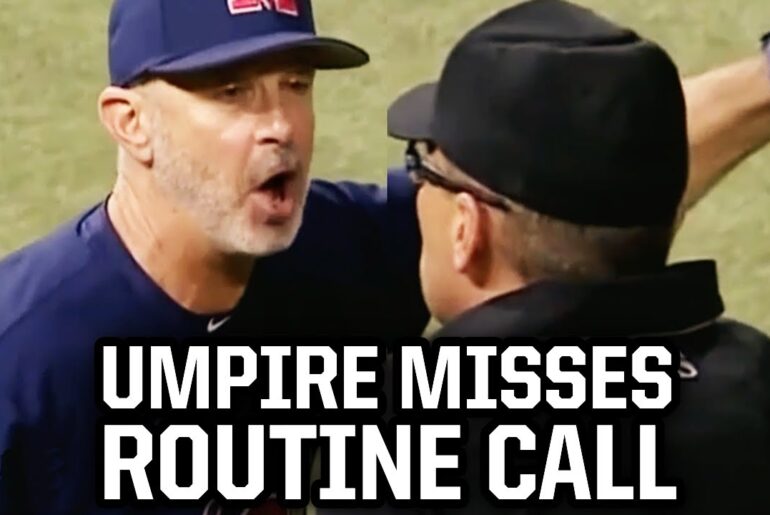In a recent Major League Baseball (MLB) game, an incident occurred that raised eyebrows among players, spectators, and umpires alike. This breakdown delves into the events that transpired, highlighting the reactions and actions of the players and umpires involved. This article presents a comprehensive analysis of the situation and aims to shed light on the controversy surrounding the incident.
Christian Walker’s Discontent
The incident took place during the bottom of the fifth inning, with Christian Walker at bat for the Diamondbacks in a tied game. A particular pitch was called a strike, not due to the swing but because it fell within the strike zone. Walker, visibly dissatisfied with the call, shook his head in disagreement. He took a moment to compose himself, prolonging the interaction with the umpire, making it evident that he disagreed with the decision. The count stood at 0-2, further adding to his frustration.
The Check Swing and Vocal Outburst
As the game progressed to the bottom of the sixth inning, Walker’s discontent continued to grow. When faced with a check swing, the umpire ruled that Walker had not swung. This decision seemed to align with Walker’s belief, and he expressed his satisfaction with a vocal outburst. The situation escalated when a bunt attempt by another player resulted in a similar ruling. Walker, displaying his displeasure once again, engaged in a verbal exchange with the umpire, questioning the decisions made.
The Clapping Controversy
During this exchange, Walker resorted to clapping sarcastically, indicating his disagreement with the umpire’s judgment. The umpire, clearly bothered by Walker’s actions, responded by warning him to cease such behavior. However, Walker persisted, clapping sarcastically throughout the confrontation. This persistence led to further action from the umpires, who felt compelled to intervene and address the issue more seriously.
Umpire Intervention and Ejection
Concerned with the escalating situation, the umpire made his way towards Walker, adopting a non-threatening posture, with his hands held behind his back. The umpire intended to have a peaceful conversation and diffuse the tension. At this point, it became clear that the ejection was not solely due to the clapping incident but rather a culmination of Walker’s continued discontent and his behavior throughout the game.
Alternate Perspectives and Umpire Warnings
To gain additional insight into the incident, one can turn to the account provided by Kenny Rosenthal in The Athletic. According to the umpires, in addition to his gestures and comments directed towards the umpires, Walker allegedly yelled as he made his way down the steps and even threw his equipment. When Walker returned to the field, he continued to discuss the matter, prompting the second base umpire to issue a warning and notify the Diamondbacks of the need to address Walker’s behavior.
Analyzing the Situation
As the incident unfolded, the question arose as to whether sarcastic clapping is an acceptable means of expressing displeasure on the field. Some argue that as long as the clapping remains tasteful and does not involve verbal insults, it should be permitted. However, it is essential to consider the broader context of Walker’s actions, including his verbal outbursts and continued discussions about the incident between innings. The umpires were left with the challenge of determining an appropriate response to the situation.
Conclusion
The incident involving Christian Walker’s discontent and subsequent ejection from the game highlights the complexities that arise in MLB when players express their dissatisfaction with umpire decisions. While the initial trigger may have been a disputed call, it was Walker’s continued actions and comments that ultimately led to his ejection. The role of the umpires in maintaining order and addressing players’ behavior cannot be overlooked. The incident serves as a reminder of the ongoing dialogue between players, umpires, and league officials regarding appropriate conduct on the field.



